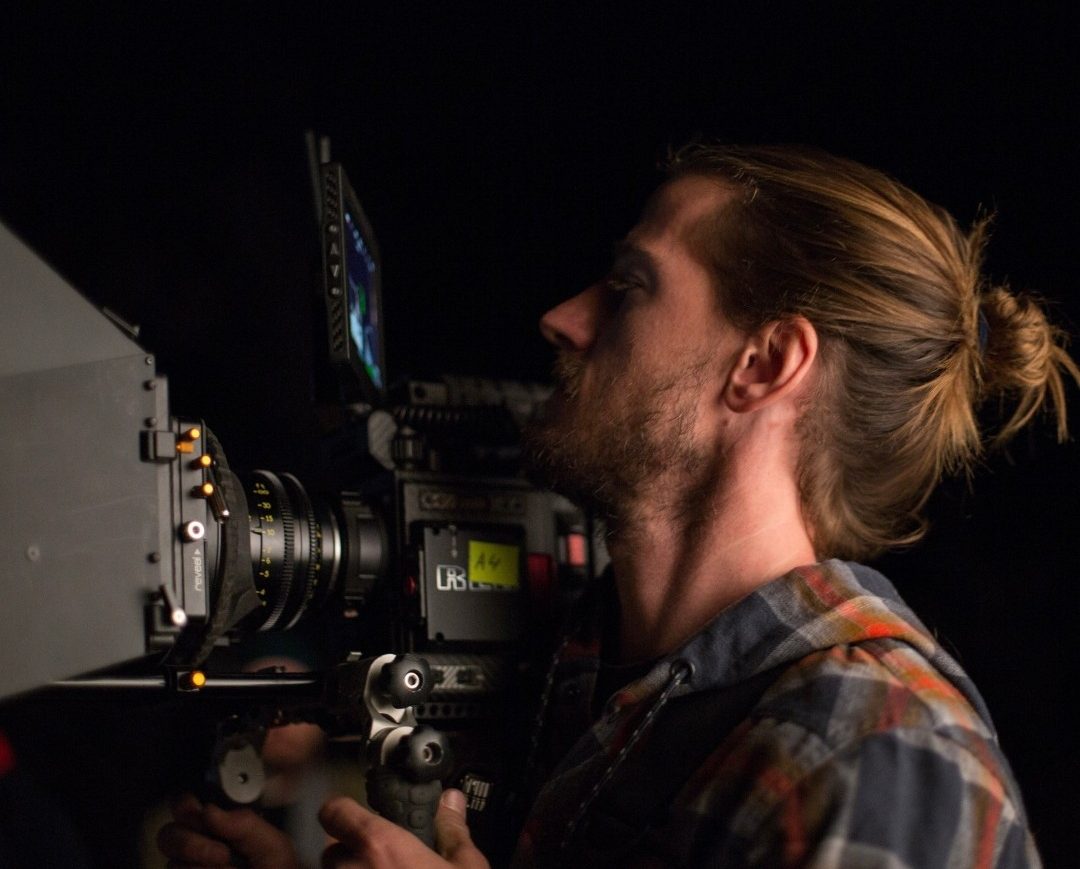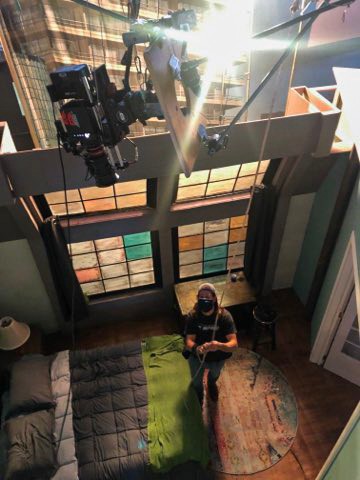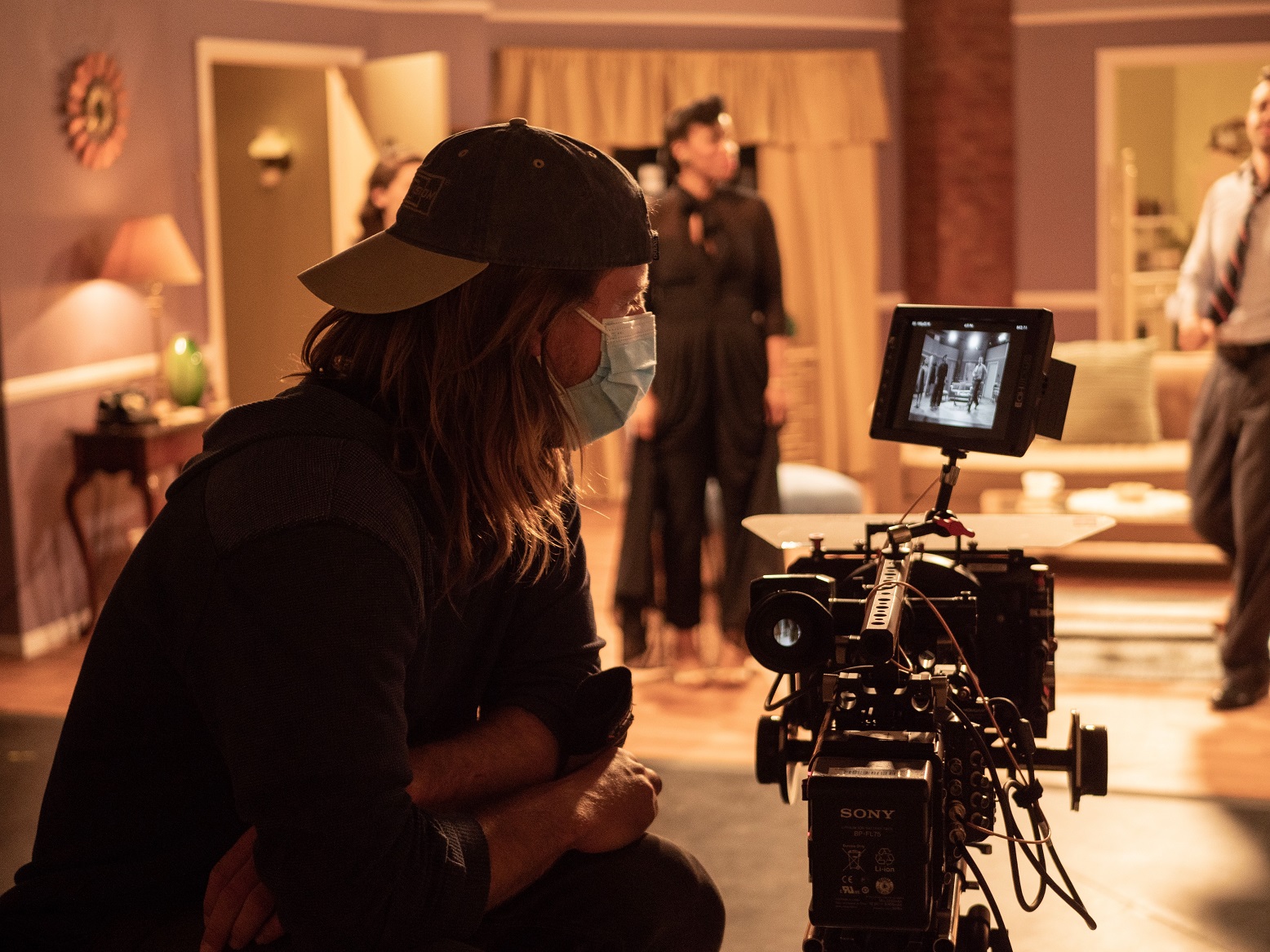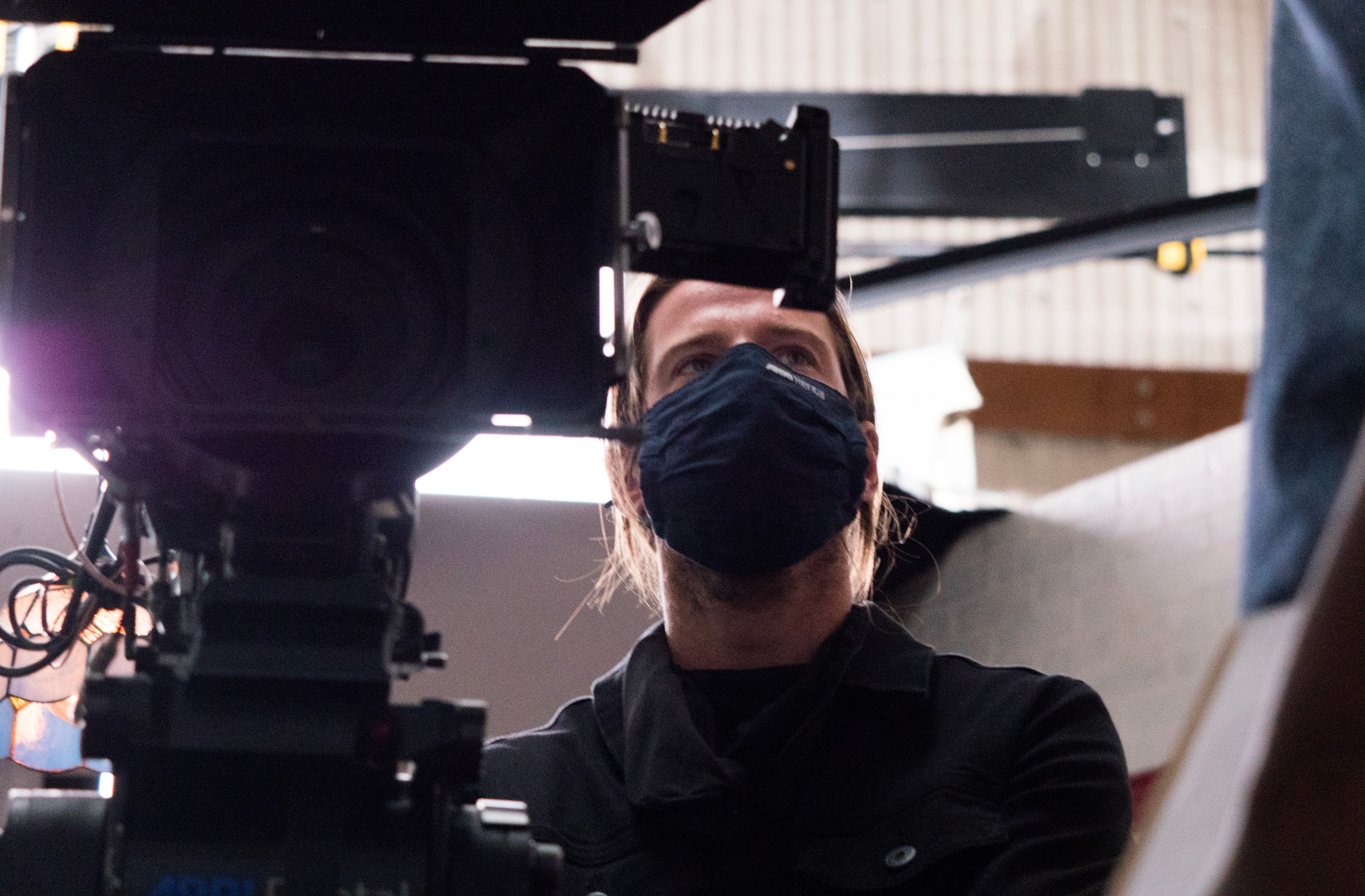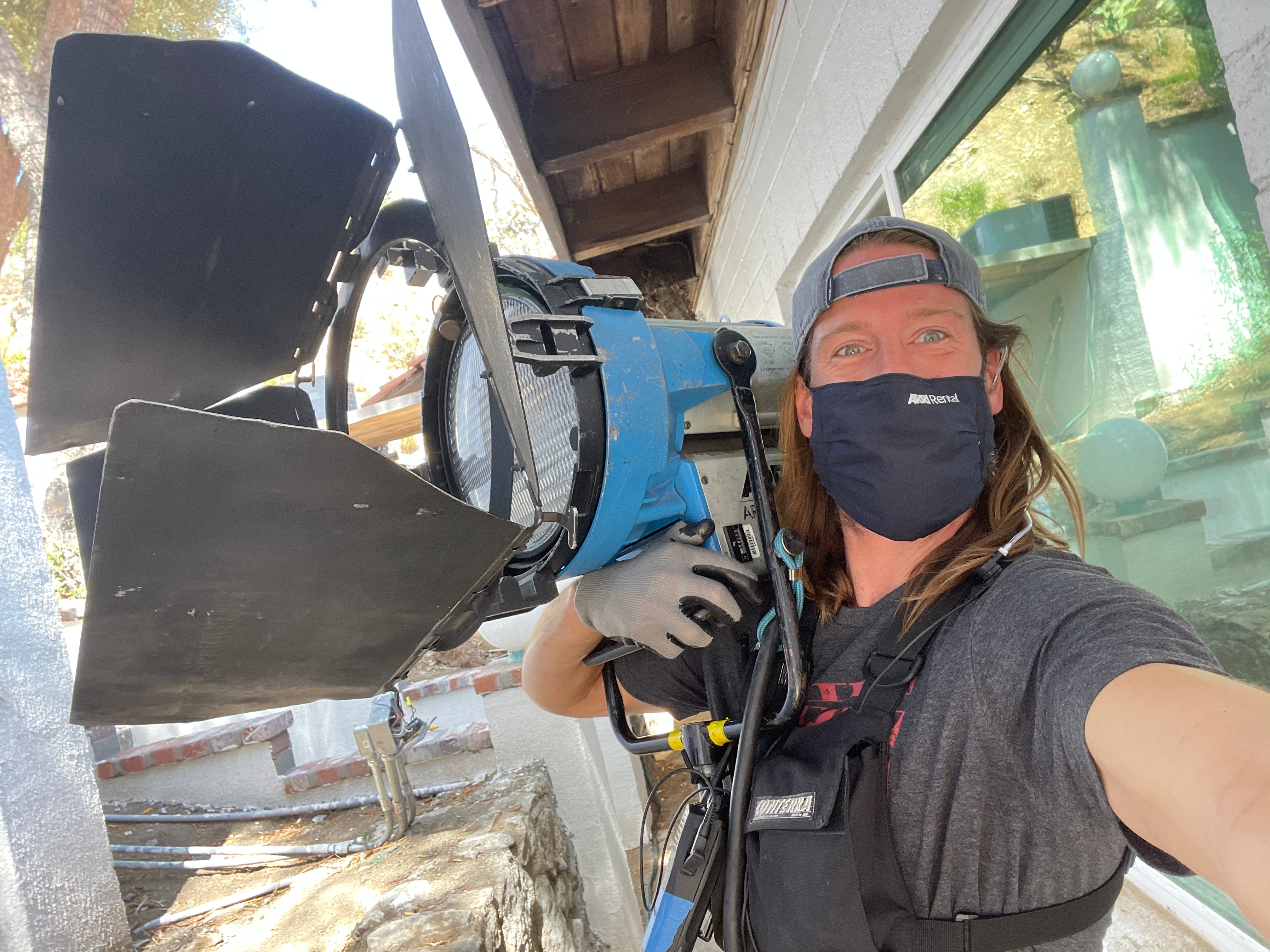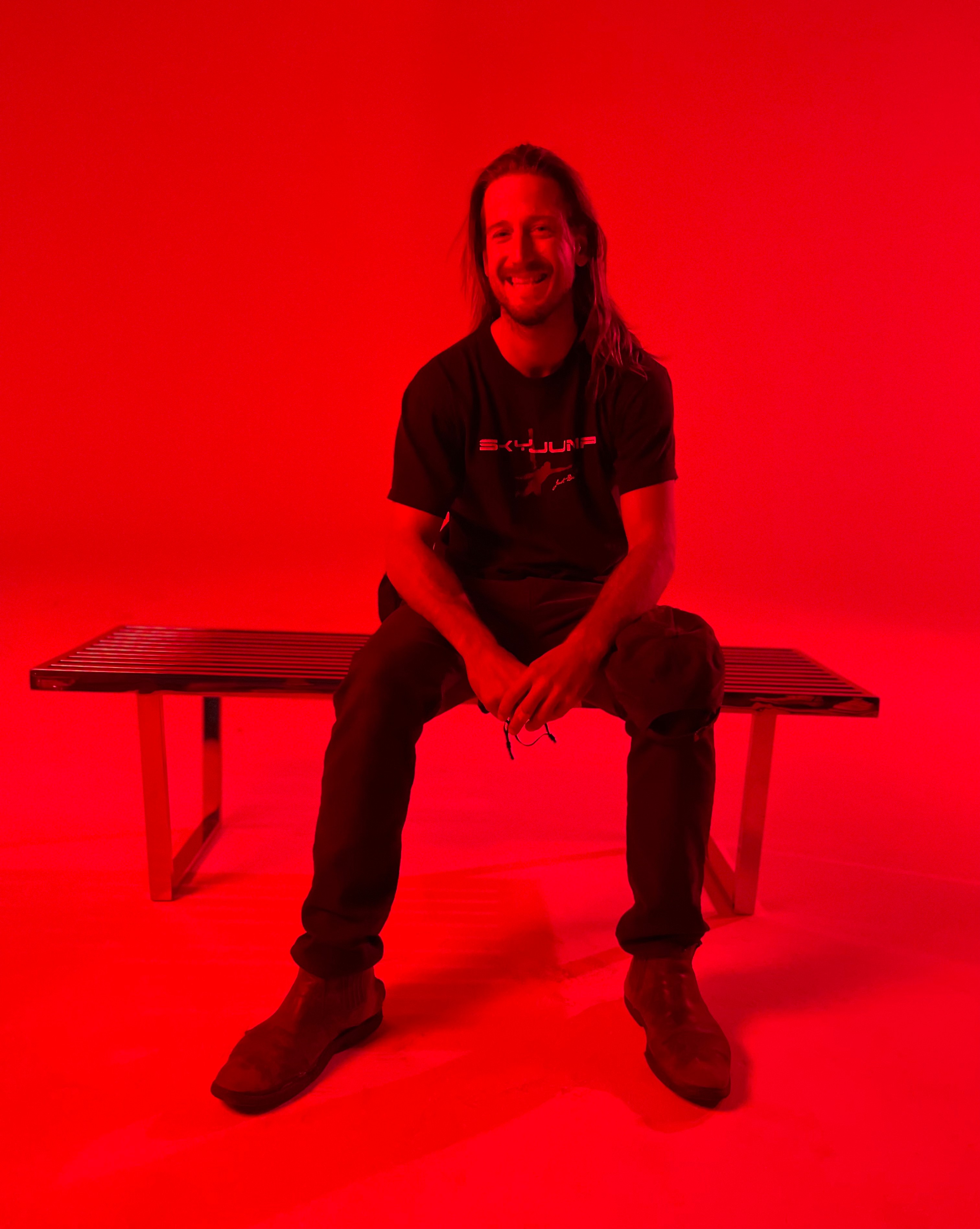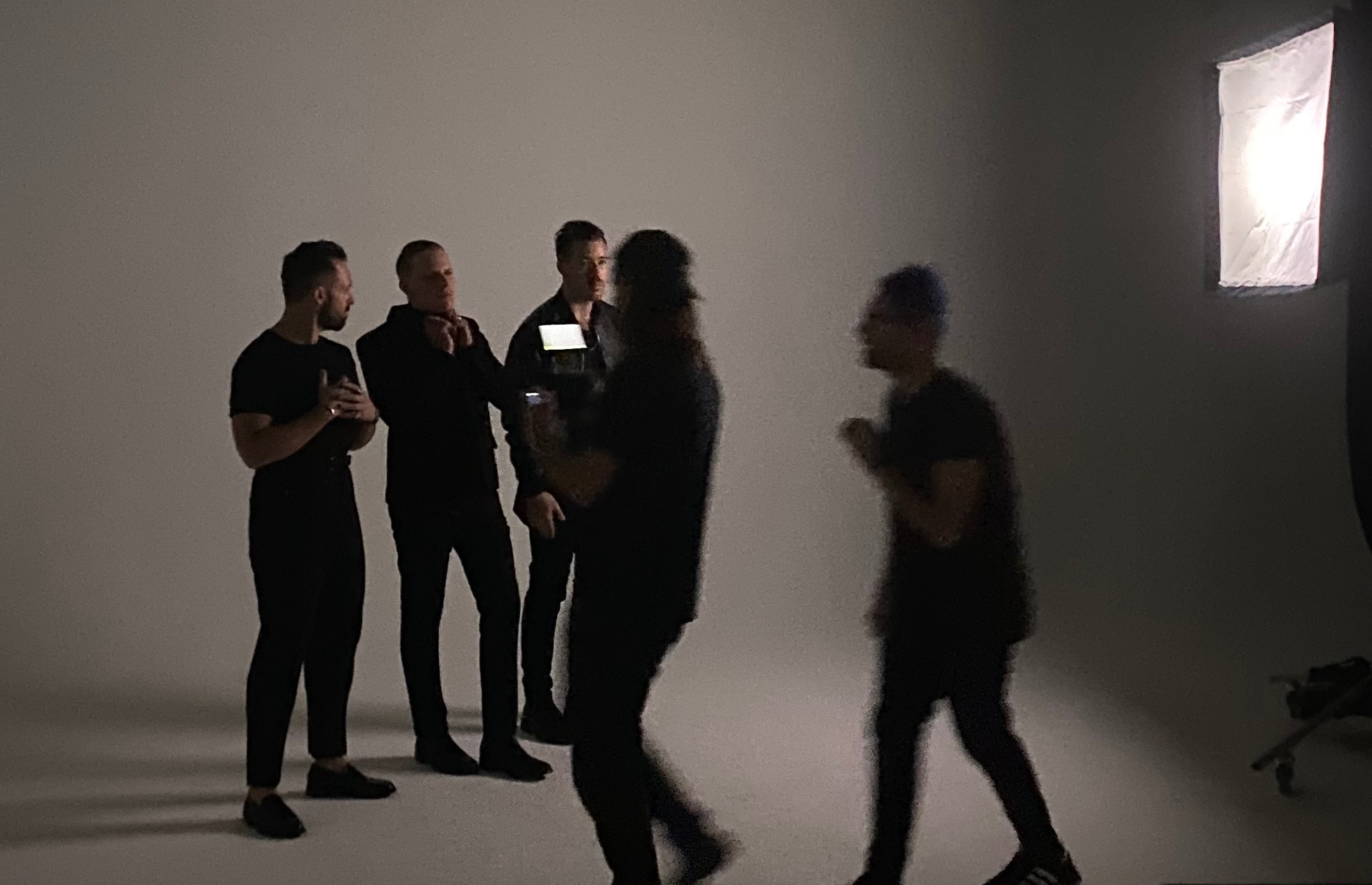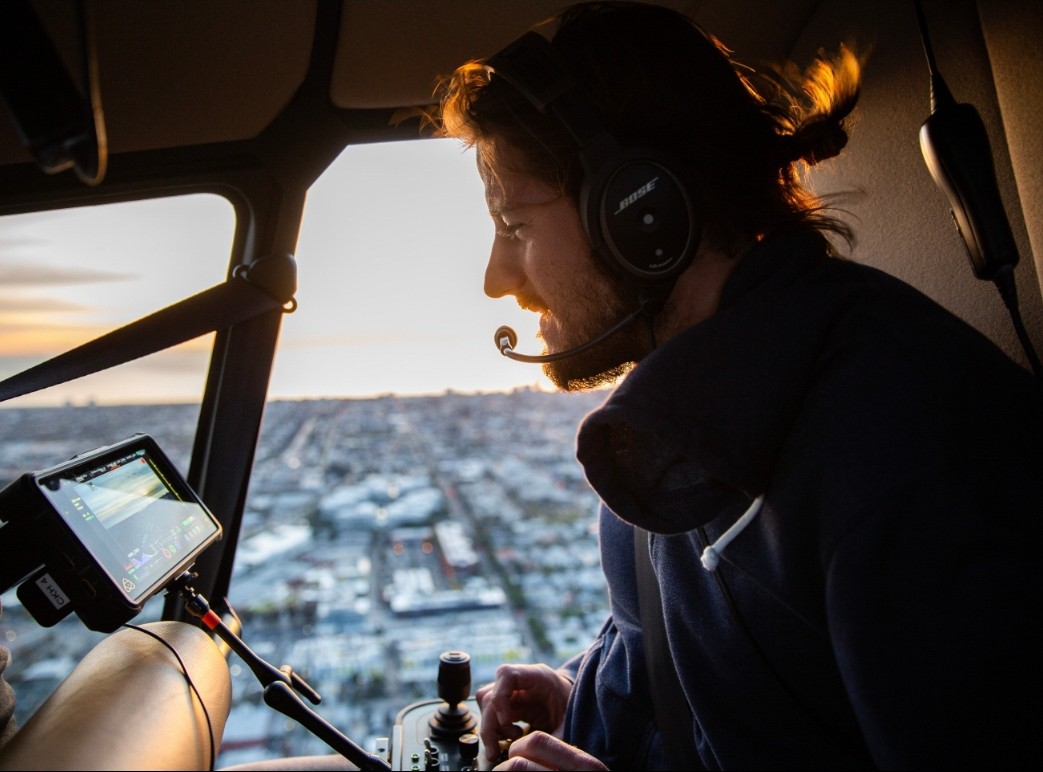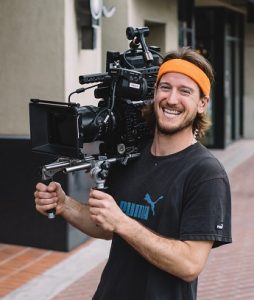
Today we’d like to introduce you to James Arterberry.
Hi James, thanks for sharing your story with us. To start, maybe you can tell our readers some of your backstory.
I hit record just as the bow of USS Freedom launched off a wave the size of a small mountain. We achieved momentary flight before plummeting back to the sea. Water soared sky-high, drenching me and my camera filming on the bridge-wing four stories above the waterline.
As the Navigator of this newly christened 300-foot Littoral Combat Ship, it was my responsibility to find routes that avoided high sea-states. But here I was, intentionally steering us into a major storm system off the coast of Oregon. With a six-month deployment to South-East Asia approaching, admirals in Washington wanted to know how the ship would respond in heavy seas…Most of the crew onboard was confident in her structural integrity, but I tipped off the local Coast Guard stations of our whereabouts…just in case…
“What are you doing out there Lieutenant Scorsese?” my Captain shouted from inside the bridge.
“Just getting some footage for my applications Sir!” I yelled back.
“That’s great. Now whose job is it to yell ‘Cut!’? Because it’s your turn to drive.”
Six years before any of this, I would never have thought I’d be on a warship filming my own version of Riding Giants (and hopefully not Titanic…), with Singapore, India, Indonesia, The Philippines, and now most excitingly, film school, all just over the horizon…
I was in my third year of undergrad at Vanderbilt University, and I was miserable. Despite having zero interest in the subject, I had chosen economics as my major. Youthful ignorance led me to believe this was the only logical route for success later in life: Work a finance job, head off to business school, get an MBA, yada-yada…
Oblivious to the various opportunities that such a good school could offer me, I grew increasingly apathetic. I was sleepwalking through my studies, drinking away the college experience, and slipping into a depression. I was on the verge of getting kicked out of school for alcohol infractions and academic probation until a fateful night in Intro to Film Studies changed everything…
It was a Tuesday night class, and I took a seat in the third row of the school’s newly renovated theater screening room. On the evening agenda: the cinematography of Robert Elswit in Punch Drunk Love. As we broke down the film’s visual language–the framing, the slow and deliberate camera movement, the colors—I perked up. My mind lasered in on everything our professor was saying, and an inexplicable feeling rose in my chest. Never before as a student had I felt this inspired and alive. I had found my calling.
It was too late to switch majors, but screw business school. From this point on, I was dedicating my life to one day go to film school and pursue a career as a Director of Photography.
Would you say it’s been a smooth road, and if not what are some of the biggest challenges you’ve faced along the way?
Military service has always been an important tradition in my family, going back generations. And despite this newfound clarity for a future in film, I still felt strongly about honoring the family legacy. So with graduation approaching, I put the cine dream on hold and applied to Navy Officer Candidate School (OCS) to become a Surface Warfare Officer.
For three long months, OCS recruits undergo a grueling training regimen that involves intense physical and mental exertion, sleep deprivation, and no days off (sound familiar, fellow film crew members?). And just one week in, I had reached my breaking point.
It was at the height of Indoctrination Week, and our Marine Corp Drill Instructor (think Full Metal Jacket…scary as hell…) was leading us through a seemingly endless work-out in the dreaded sandpit we called the SUYA (Sand Up Your A$$…) Horse from shouting and cramping all over, I was ready to throw the towel in. Quitting here, I would forfeit my spot at OCS. But when all seemed lost, I had a vision of myself, ten years in the future, surrounded by palm trees on a sunny campus somewhere in SoCal, laughing with fellow film school peers…and slung over my shoulder was a cinema camera. If you quit now, you will forever lose that James, I thought to myself. If you want to be a cinematographer…earn it.
In that moment, I expelled any notion of an alternative pathway to film school or a future career in cinematography. Both entirely hinged upon succeeding in the military first. If you fail in the Navy, you don’t deserve to work in film.
Dedicating myself to this new life philosophy and dangling this carrot of an (outlandishly romanticized) future in film, I survived that day in the SUYA and graduated from OCS in February 2011. I went on to serve on four different warships as a Combat Systems Electronics Officer, an Electrical Engineer, a high-speed Navigator. And every new command I reported to, I’d volunteer for the collateral duty of ship’s videographer. When not standing watch on the bridge, I would film and edit videos of sailors serving in their respective areas of expertise—from fire-fighting, flooding control, drug-seizure boardings, search and rescues, to hover-jet flight operations. And during extended overseas deployments to the Korean Peninsula or the South China Sea, when covert missions were cranking up the stress, I would pick up my camera to remind myself of that reliable mantra that saved me during OCS: Endure. Cinematography awaits.
After seven years of unforgettable experiences at sea and serving with some of the best and bravest men and women this country has to offer, I submitted my resignation letter and applied to graduate schools all over the country. Soon after, I received the exciting news of being accepted into Chapman University’s Cinematography MFA program.
Can you tell our readers more about what you do and what you think sets you apart from others?
While COVID tried its hardest to throw a wrench in the plan, I graduated from Chapman this past summer, having shot two thesis short films, Veneers and Christine de Blue, and a multi-cam TV pilot, Black & White—all of which I am extremely proud of and eager to see what they can stir up on the festival circuit.
I’ve also been very fortunate during my first year out of school, having met some incredible cinematography mentors who’ve taught me invaluable skills that can only be learned in the professional world (specific shout-outs to James Whitaker, Rachel Bickert, and Dave Wilwayco here!)
While initially working grip & electric jobs to improve my lighting game, I’ve been getting more opportunities to step up to the cinematographer’s role, having just shot a music video in the Bay Area and one locally here in Los Angeles. Most recently, I’ve been hired by SPIN Magazine to film musical performances and social content for world-renown musicians Rufus Du Sol, Chvrches, Summer Walker, and LP.
Looking ahead, I am currently in pre-production for a short film called Bateson’s Belfry that I am directing and co-writing with my best friend from high school, Henry Montalbano. A fellow veteran, Henry served five impressive years as a Green Beret Special Forces Operator with a tour to Afghanistan in 2014. Finding the healing potential of songwriting following his service, Henry took a stab at screenwriting and sent me a first draft of the film. I was hooked and pledged to bring the film to production with him.
Set against a war-torn Appalachia town in the 1860’s, the film explores non-traditional avenues for grieving and reconciliation—specifically through fiddle playing and early Americana Folk music. We have a target production window for October 2022, and we’d love to find fellow veterans in the arts to join the team. If there any filmmakers/producers/casting agents/actors/fiddle players with prior military service out there reading this and interested, please reach out!
We love surprises, fun facts and unexpected stories. Is there something you can share that might surprise us?
So often people are surprised to hear about what I used to do for a living. “You used to drive Warships? That’s quite the career U-turn!” But I often laugh to myself observing all the parallels between ship-life and set-life.
Navigating an aircraft carrier through busy waters while simultaneously coordinating helicopter landings and small boat operations—at the end of the day—is surprisingly similar to getting a shot off that requires a complete lighting flip, building a menace arm, leveling a 20-foot dolly track run, and swapping a lens. Both are essentially time-sensitive puzzles, with many moving parts that must be calmly and swiftly solved through multi-tasking and delegation to trustworthy teammates. If you are slow on a ship, the XO yells at you. On set, it’s the 1st AD.
Contact Info:
- Email: Arterbjd@gmail.com
- Website: www.jamesarterberry.
com - Instagram: https://www.
instagram.com/jdart.cine/
